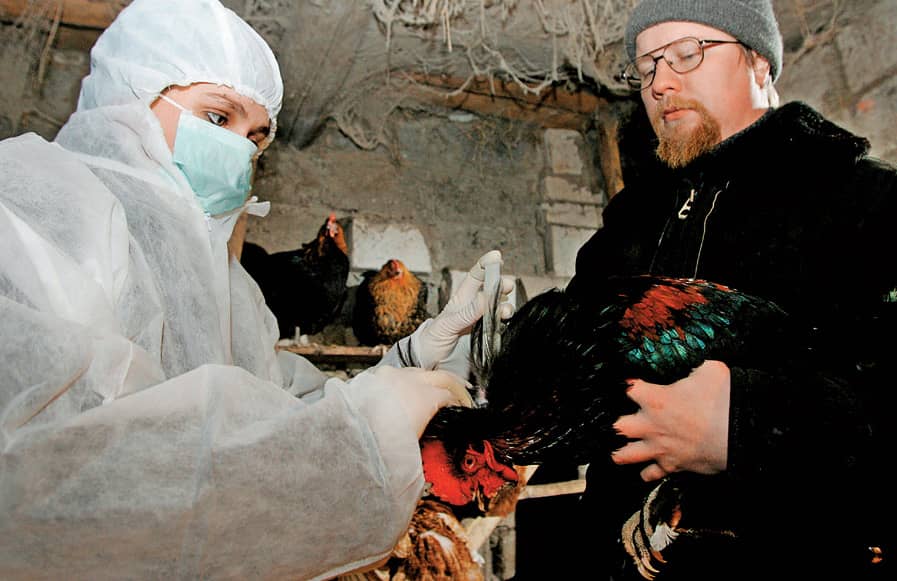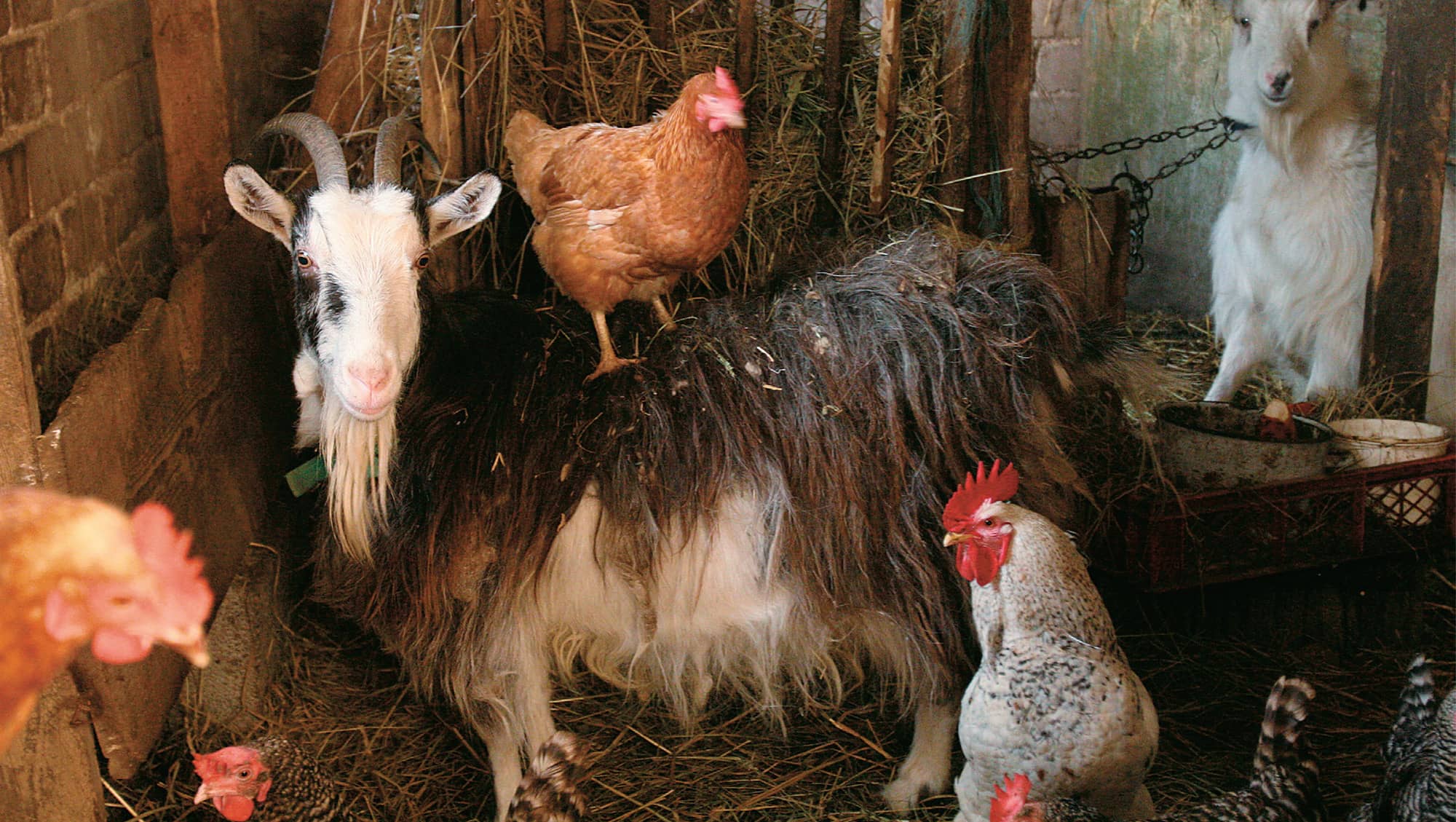
BACKYARD OUTLAWS: ARE CHICKENS ALLOWED WHERE YOU LIVE? WHAT SHOULD YOU DO IF THEY AREN’T?
BEFORE STARTING your backyard flock, make sure chickens are allowed where you live. Start hyperlocally by learning about regulations such as those from your homeowners association, then move outward. Check with city, county, state, and federal laws, too. Many major cities, for example, seem to allow backyard chickens, but the smaller ones do not. (The only conclusion we can draw as to why relates to the notion that larger cities are typically older, meaning at their start, residents likely kept chickens and other livestock for food supplies.) Solid resources where you can find out about chicken-related laws near you include www.municode.com and www.thecitychicken.com. Also, learn the terminology that applies to your area. Some laws state that only domesticated animals are allowed. Technically, chickens were domesticated at one point in time, some 6,000 to 10,000 years ago. Other laws may state that only household pets are allowed. One definition of pet is an animal kept for companionship and pleasure. Chickens could fall into that category. Finally, some laws classify poultry as livestock and apply to it all accompanying livestock regulations.

[ Chickens will always find a new social gathering place. ]
GETTING LAWS CHANGED
If you find out that keeping backyard chickens is not allowed where you live, you have three choices. Don’t keep backyard chickens, keep them under the radar, or work toward trying to get the laws changed so you can keep them legally.
Before heading off to that city council meeting to get the backyard chickens laws changed, you need to arm yourself with information. People tend to gripe about problems they think accompany backyard chickens, such as noise, smell, rodents, disease, or decreased property values. Here’s what you need to know:
The Truth About Noise
The stereotype that a rooster crows early every morning (as well as throughout the day) is true. Therefore, complaining about a rooster’s noise is valid, especially if the bird likes to sound his alarm well before sunrise. But here’s your argument: Most urban chicken keepers want backyard chickens for the endless supply of fresh eggs, not to breed the birds for chicks. Guess what? You don’t need a rooster to get eggs from hens. In fact, hens tend to lay better without a rooster around to disturb their routine. And in contrast to their male counterparts, hens are relatively quiet, sleeping soundlessly through the night.
If you do want a rooster, try a different tack: Obtain noise-complaint statistics from the local law enforcement of a town that does allow roosters. Chances are that complaints about barking dogs and loud music far outnumber those resulting from crowing roosters.

If you are a late sleeper, roosters are not for you. Yes, it’s true. They do cock-a-doodle do!
The Truth About Smell
Smell is another complaint often brought up when discussing chickens. Yes, chickens can produce an odor—just like dogs, cats, rabbits, hamsters, gerbils, even people—if not cared for properly. The smell most people think of comes from commercial chicken houses holding tens of thousands of chickens. That’s what most people think of when you say you want chickens in your backyard. The reality is that you’ll probably keep anywhere from six to twelve laying hens in your backyard, no more. Plus, the best way prevent your chicken coop from smelling is to keep it clean.
The Truth About Pests
Keeping chickens brings mice and rats, right? No. Chickens themselves don’t attract mice and rats, but rather the rodents come for a food and water source. In that vein, a backyard chicken feeder is no different than a typical wild bird feeder when it comes to providing food for mice and rats. Same goes for a chicken waterer; as a water source for mice and rats, it’s no different than the saucer at the bottom of any outside potted plant. In all likelihood, you have mice and rats outside your home right now that you just don’t know about—and so do your neighbors.
The Truth About Disease
People tend to express concern about diseases backyard chickens might bring to the area if allowed. In 2007, a worldwide outbreak of avian influenza led to a flurry of questions about the risks of this disease and keeping backyard chickens. In 2014 and 2015, the United States experienced its largest outbreak of highly pathogenic avian influenza in history, which included fifteen states with 211 commercial farms and twenty-one backyard farms affected, resulting in more than 54.4 million birds being destroyed. Still, neither USDA-APHIS nor the CDC is recommending people get rid of their backyard flocks. Instead, they have increased their educational materials to educate backyard flock owners about how to keep their families and their flocks safe from infectious poultry diseases.
Few diseases that affect chickens also cause illness in humans, and the diseases that do often result from unclean living conditions for the flock. The take-home message is simple: Always practice good biosecurity measures, including keeping your flock’s living conditions clean and free from mud, built-up feces, wild birds, and rodents. See chapter 10 and Appendix II for more on this topic.

A veterinarian inoculates a rooster against avian flu virus in 2007.
The Truth About Property Values
Some who oppose backyard chickens do so because they believe the chickens will decrease the value of their home and others in the neighborhood. This is a hard argument all around; unless a family has specific evidence—a signed letter from the homebuyer, for example—showing that the chickens next door caused the house to sell for less money, it’s nearly impossible to prove.
The Truth About Other Farm Animals
Allowing backyard chickens does not mean the town also has to allow goats, pigs, or cows. I have never heard of a town that allowed backyard chickens and now has a goat, pig, or cow problem.

Don’t just assume because you can keep chickens that you can keep other species of farm animals—there are different regulations and criteria for different species, for their safety as well as yours.
ENFORCEMENT CONCERNS
Let’s say you convince your neighbors and the rest of the town that keeping chickens won’t be noisy or smelly, and it won’t bring in disease or drop property values. You still need to convince city officials that there are minimal costs associated with enforcing backyard chicken regulations.
Look closely at the laws and ordinances already in place. There are likely more than enough on the books right now to enforce any problems an irresponsible backyard chicken keeper might pose. What if a rooster is crowing at 4:00 a.m.? What if a dog was barking or a neighbor was playing loud music at the same hour? The aggrieved can file a noise complaint. What if a chicken gets loose in the neighborhood? Well, what if a dog gets loose in the neighborhood? Go after it and bring it home. Or for instance, what if the chicken run starts to smell? People can address this complaint as they would if a dog pen or compost pile started to produce a stench: by talking to the person or home generating the odor or by complaining to the local government.
